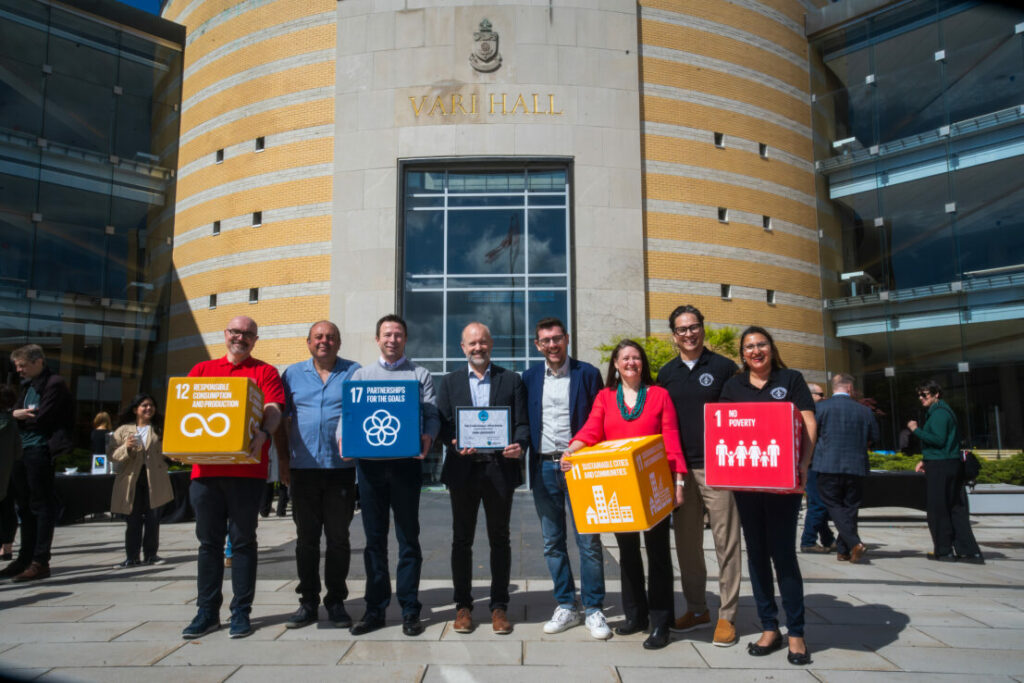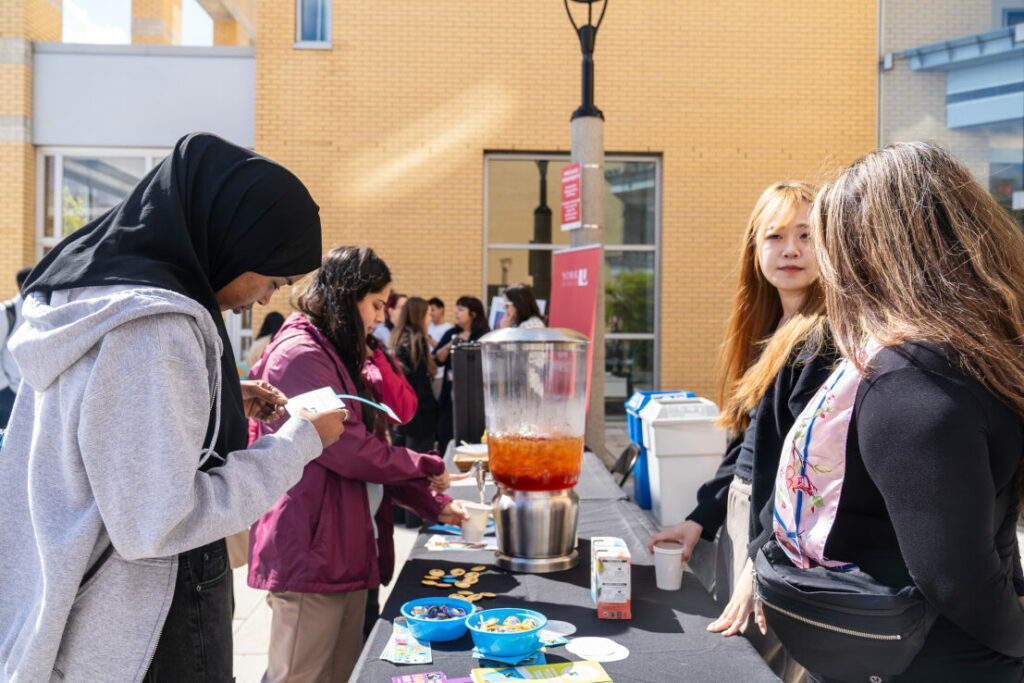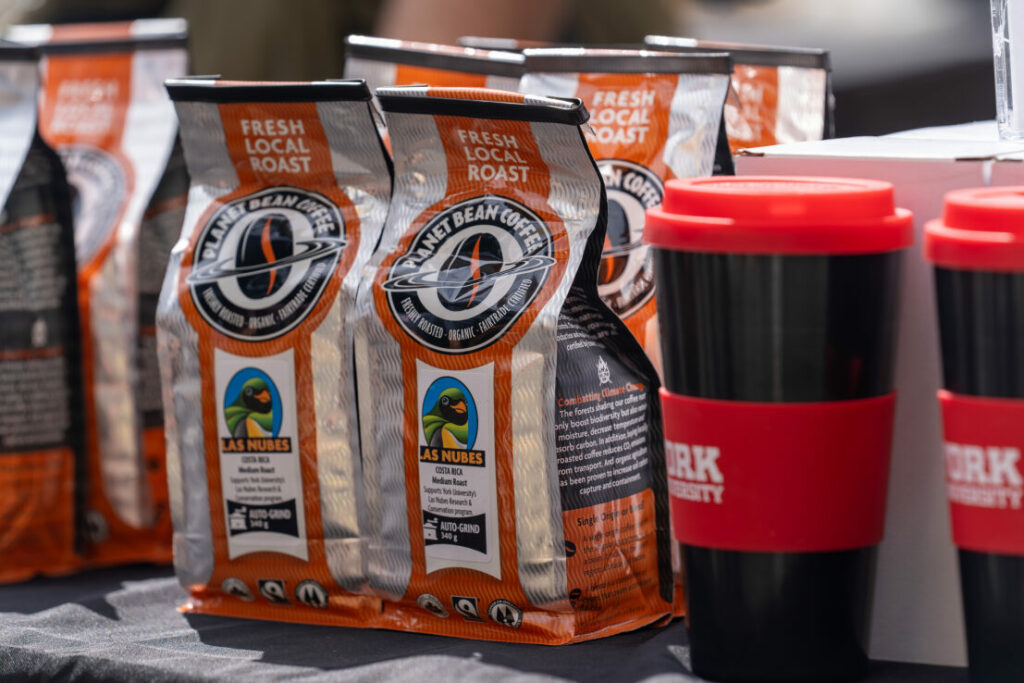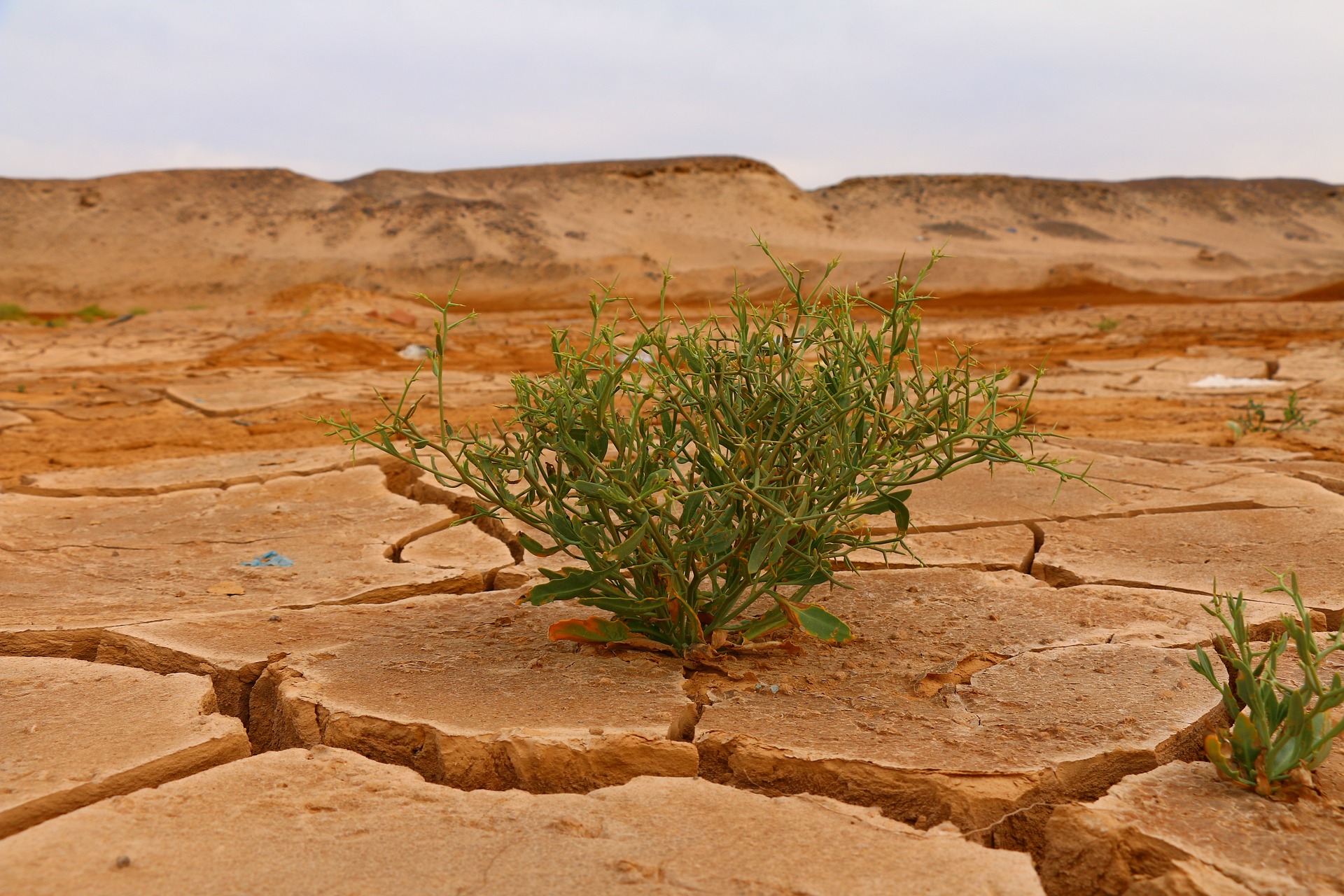
York University sips from the cup of fair trade, receives silver designation
As part of its sustainability strategy, the University is now a designated Fair Trade Campus for its commitment to providing products that benefit workers in the Global South
TORONTO, May 8, 2024 – York University is full of beans – fair trade coffee beans – excited about its new fair trade silver designation and its ability to offer sustainably produced coffee, chocolate, tea and more across its three campuses.
It takes a community. Receiving the fair trade recent designation was the result of years of dedicated collaboration between students, faculty and staff to provide more sustainable options at its campuses. The designation is a big win for those who championed and raised awareness of fair trade at York.

The University celebrated its new designation today with a pop-up event outside of Vari Hall on the Keele Campus hosted by the Office of Sustainability to further foster awareness and community while serving up free fair trade Las Nubes coffee. The event also helped the University's Office of Institutional Events achieve gold in the Sustainable Events Certification Program.
The fair trade designation is just one way York can make a global difference in the lives of others by leveraging its buying power for good. It also creates learning opportunities for students and encourages an understanding of the impact of buying choices and how they can go a long way toward sustainability.
“At York University, our commitment to sustainability isn't just a strategy - it's a community-driven journey where every fair trade purchase creates ripples of positive change worldwide," says Mike Layton, chief sustainability officer. "York's achievement of becoming a Fair Trade Campus would not have been possible without the work of many across the University, including teams in Food Services, the Bookstore, professors and former students.”
Fair trade items such as bananas, various snacks, banana chocolate chip loaf, and hot chocolate round out some of the edible offerings at a variety of restaurants, food services, stores and vending machines, including fair trade Las Nubes coffee, grown near York's Las Nubes EcoCampus in Costa Rica and its 400-acre Las Nubes Biological Reserve. Students at the Faculty of Environment and Urban Change’s EcoCampus learn about and research neotropical conservation, eco-health, community well-being and sustainable livelihoods.

In addition to food, fair trade apparel is also available at the University’s Bookstore – considered the first in Canada to sell certified, fair trade clothing in a campus bookstore – in partnership with Green Campus Co-Op, a campus based-cooperative and sustainable products supplier founded by students and faculty at York and incorporated in 2011. It was their answer to the lack of fair trade cotton T-shirt importers in Canada or ways for students to embrace and create change. Today, there is a wide selection of fair trade T-shirts and hoodies in the York University Bookstore.
This is in line with York’s decades long commitment to sustainability and support of the United Nations Sustainable Development Goals (SDGs), part of its University Academic Plan. As a Fair Trade Campus, York is helping to tackle several SDGs, including SDG 12 – responsible consumption and production, SDG 2 – zero hunger, SDG 1 – no poverty, and SDG 11 – sustainable cities and communities.
The designation comes through the Fair trade Campus Program of Fairtrade Canada, a volunteer-based organization. All fair trade products ensure production workers and farmers are fairly treated fairly and compensated for their work.
The Early Days
York’s championing of sustainability has a long history of faculty and student cooperation.
Professor Emeritus Darryl Reed, who does research on fair trade and encourages its education through course work and experiential education, Professor John Simoulidis, director of the Green Campus Co-op, – both of the Business and Society Program in the Faculty of Liberal Arts and Professional Studies (LAPS) – and Professor John Justin McMurtry, now the dean of LAPS, were a few of the people who pushed the initiative forward in the early days, with then student Madison Hopper, who now works for Fairtrade-certified banana importer, Equifruit. Sasa Nestorovic, bookstore director, is another big supporter and leads the acquisition of fair trade merchandise.
The initial goal was to make connections between social economy enterprises in Ontario and India, such as cotton growers, through a research project that looked at the possibilities, challenges and benefits of these types of partnerships. At that time cotton growers in India could be exposed to some 118 different pesticides.

Fair trade is something these professors, their colleagues and students, including the late York environmental studies Professor Howard Daugherty, an advocate for fair trade and the environment who was instrumentally involved in the beginnings of York’s Las Nubes Biological Reserve, have been working toward for some 15 or more years. The reserve started with a donation of mountainous cloud forest in Costa Rica donated to York by Dr. Woody Fisher in 1998.
The reserve’s primary areas of research included studying protected areas in the neotropics, natural resource policy and management, biological conservation, and sustainable development. The EcoCampus in Costa Rica provides the ideal location for research and learning.
Throughout its sustainable journey, York has included students in the process, including the annual fair trade fair on the Keele Campus designed in part to educate the University community about how their choices make a difference. Through the Green Campus Co-Op, students are also given experiential learning opportunities with the hope to spark a new generation of sustainable entrepreneurs.
York continues to follow the path of sustainability and equity.






